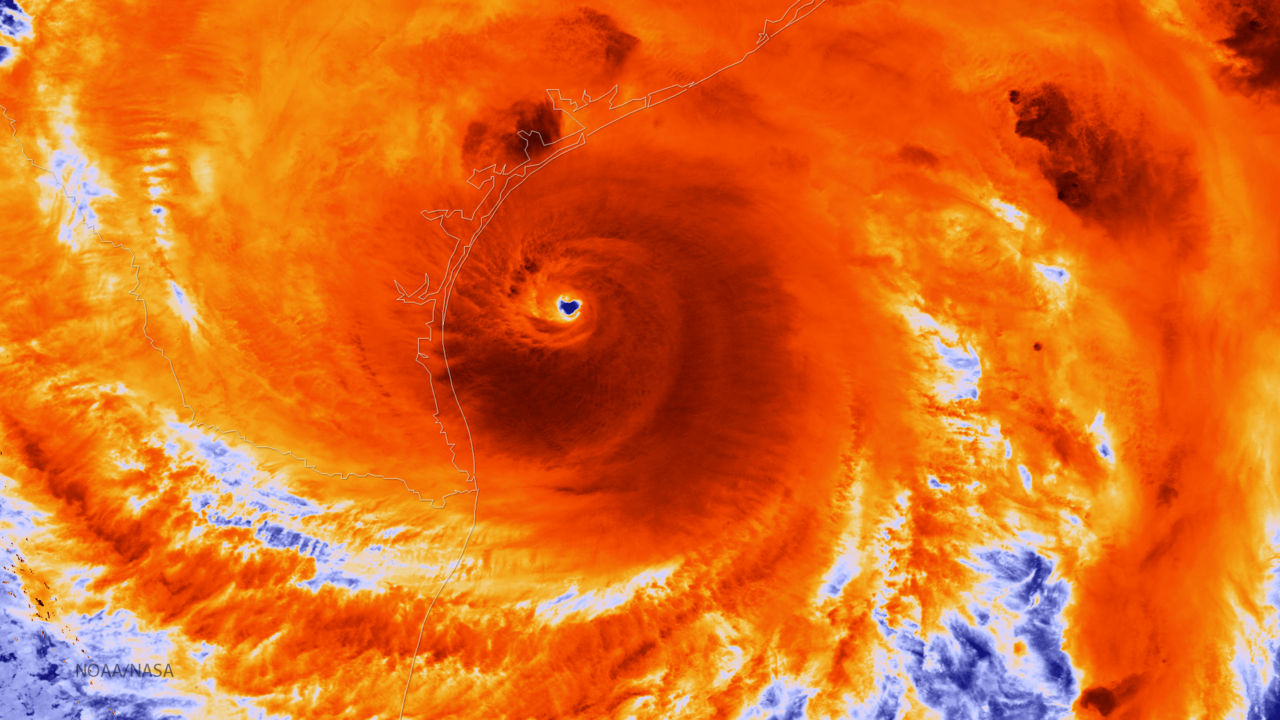Views expressed in opinion columns are the author’s own.
There’s a lot of evil out there these days. The vast majority of Republican congressional representatives lined up behind a healthcare bill that was meaner than a sucker punch, and President Trump added fuel to the bipartisan war machine in Afghanistan. The people running our country seem devoid of compassion and courage, and many of our institutions are rotted to the point of collapse. Following the news is like carrying a heavy backpack uphill from North Campus to McKeldin — the burden is heavy, and the journey never seems to end.
In recent days, America has turned its attention to Texas, where Hurricane Harvey unleashed torrential rains and unprecedented flooding on the people of the Lone Star State. While heartbreaking, the Harvey story could make one feel a tad optimistic about humanity, as countless examples of stranger-helping-stranger flood the airwaves and web.
This optimism is misplaced. Harvey’s destruction is a consequence of humanity’s greatest sin: inaction against climate change. And although we should commend those who continue to pitch in to repair the damage in Texas, we cannot forget: we are responsible for the continued destruction of our environment, our fellow species and, ultimately, ourselves.
Because, while it’s a misunderstanding of the science to say climate change caused the hurricane, we can state with great confidence that climate change made Harvey worse. Penn State climate scientist Michael Mann argues that hotter sea temperatures caused greater moisture in the air, leading to the highest rainfall totals ever recorded in the continental United States. He also estimates that the storm surge would have been half-a-foot lower had the storm occurred several decades ago.
Let me be blunt: man-made climate change is likely destroying homes, ravaging neighborhoods and ending lives. Right now. And, barring a drastic reversal of course, it will only get worse.
In a bleak New York Magazine essay, David Wallace-Wells describes the chaos climate change will wreak in the absence of aggressive action. Miami and Bangladesh will be underwater within the century. In the next several decades, Mecca will be so hot as to be uninhabitable for the millions of Muslims who make the pilgrimage each year. Melting ice may release strains of bubonic plague. The air will be, as Wallace-Wells puts it, “a rolling death smog that suffocates millions.”
We are in the midst of a sixth great extinction. The extinction of the dinosaurs, who once dominated the earth like humans do today, was the fifth. And while no one can blame the dinos for a flying asteroid, this extinction is inescapably the fault of human beings, especially those in rich nations. We are culpable — just ask any climate scientist, any informed journalist or any world leader (with one glaring exception).
We, the people of rich nations, are bringing this fate on our planet and ourselves because we are morally diseased. We’ve built a culture that worships money and robs the earth’s resources to make, buy and sell. Markets are a fine way to allocate resources in some circumstances, but our capitalism is vile. It destroys plants, animals and human beings, and, in its wake, leaves smog and filth.
As events like Harvey become increasingly common, we require nothing short of a moral awakening. Aggressive action against environmental degradation cannot be the fifth bullet point in a campaign platform. It cannot be a bumper sticker. Climate change cannot be met with complacency; combating it requires marshaling all of humanity’s economic, intellectual and political resources.
There have been events in history — the Spanish Inquisition, Julius Caesar’s slaughter of Celts, King Leopold’s rule of the Congo — that later generations regard with horror. Our present is such an event, and disasters like Harvey are only a portent of what’s to come. If we don’t wake up, there may not be future generations to condemn us.
Max Foley-Keene, opinion editor, is a sophomore government and politics major. He can be reached at opinionumdbk@gmail.com.



